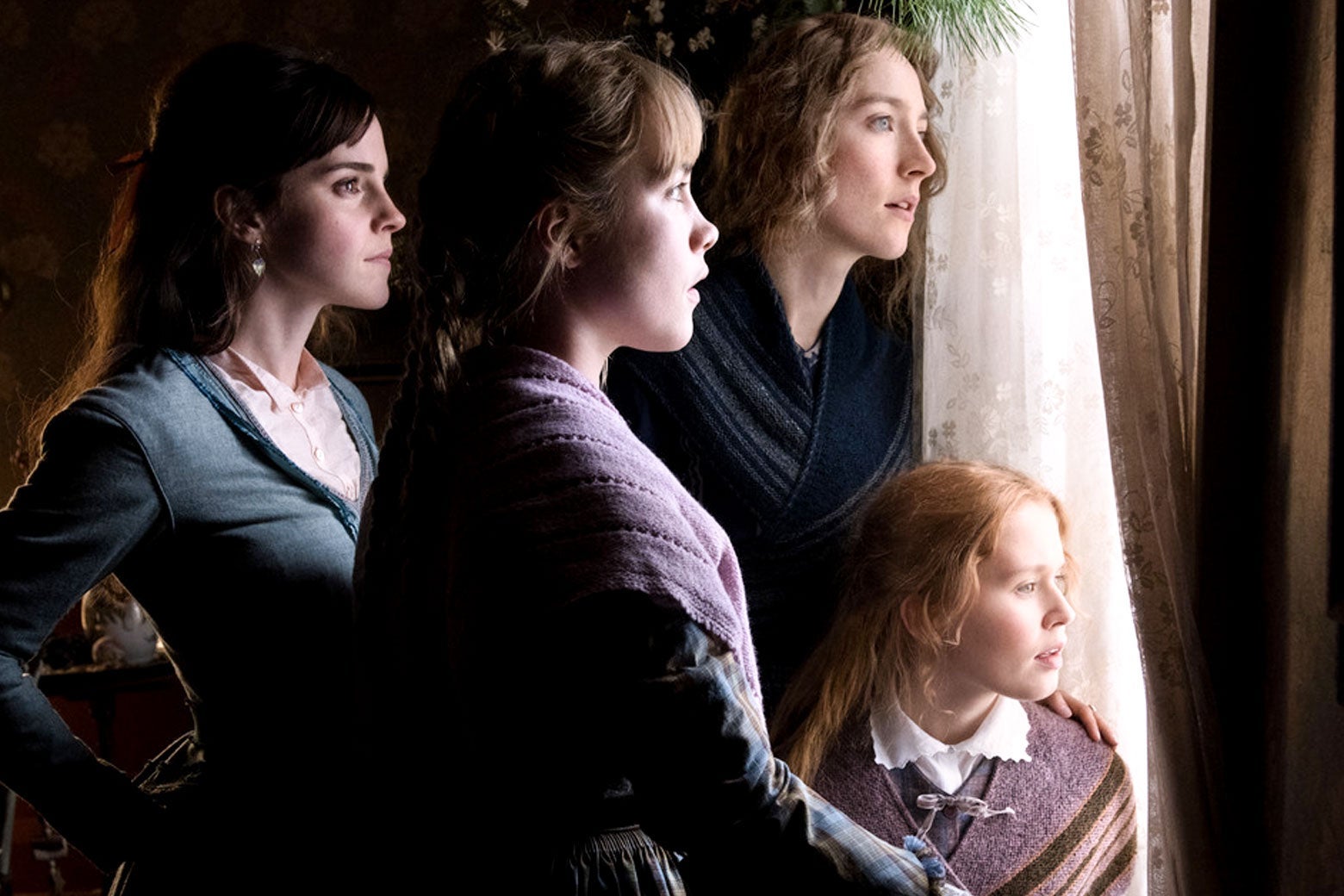"Little Women (2019)" Not Modern Enough?
As I grow farther and farther from the day I finished Little Women I find that I grow fonder and fonder of the 500 page book that dwelled upon the comings and goings of the March sisters. Of course I had heard of the Greta Gerwig's 2019 adaptation as well, it had a star studded cast featuring Meryl Streep, Emma Watson, Florence Pugh, Timothee Chalamet, and Bob Odenkirk, so it had been on my radar for a while. However, because I was reading the novel for a class this semester, I had reserved the movie until it was the proper time, not wanting to bore myself in a class that did have participation marks, and I have a couple thoughts.
First of all, what was the point of the commentary? The beginning of the movie begins with a conversation, and a book publisher admonishing Jo, claiming that women in these sorts of stories need to either be dead or married. Keep in mind I do not disagree, this is a valid critique I had of the book, Beth's character is practically non-existent, and Jo marrying Mr. Bhaer always rubbed me the wrong way, especially with the age gap. So what does Ms. Gerwig do? Absolutely nothing, in fact the only way Gerwig subverts the ending of the original novel is by thankfully de-aging Mr. Bhaer so that the age gap between him and Jo isn't so painfully creepy that it could hardly be seen as a hopeful ending.
Gerwig even acknowledges that the ending feels pretty forced and shoved in, with Jo specifically arguing with the publisher, in a meta-kind of way talking about how she had to insert her own marriage at the very end, but instead of actually being brave enough to change the end, and do what I believe Alcott couldn't in her time period aka have Jo end up being a spinster, Gerwig sadly leaves Jo as she was, married off for... reasons? At the very least they do manage to make the romances much less jarring, for Jo and Laurie are still present, but much less emphasized, and the sort of twinges of romance between Amy and Laurie are much more present, making their sudden marriage in the novel feel a lot less sudden.
In terms of pacing, I felt like this movie was a success as well, though personally, I feel like much detail/nuance was omitted/lost in translation, and I was able to relatively easily stitch together all of the pieces because I had already read the book. If a new viewer was to watch this movie, perhaps it'd take them 20 or 30 minutes to fully understand the movie which is more a tableau of thematic chapters than a chronological bildungsroman of the girls growing up. For the most part I think it works, after all Little Women is comprised of many short chapters anyways, so it only makes sense for Gerwig to chop it up and place them as she see's fit.
Score: 70/100
It was solid, and I was pleasantly surprised by some of the casting. I cannot unsee Bob Odenkirk as anything other than Saul Goodman, so seeing him in this movie was extremely jarring, but Meryl Streep as Aunt March and Florence Pugh as Amy fit really well. I'm not sure how I feel about the choice of not using different actors for different time periods, because on one hand it makes it easier to track which characters are which, but on the other hand it makes the ability to discern when a particular scene is happening that much more difficult. Also I remember seeing a post on Twitter about how the speech Greta Gerwig included in Barbie about feminism was pretty jarring and actually not that good, and you can see it here in Little Women too. I'm not saying there's anything wrong with having these themes in, but it is pretty abrupt, and surface level feminism at that, so for many viewers it's just like "we already know this". I think I would have been fine with it more if it wasn't for the fact that Gerwig was too afraid to change the endings. Why did Beth have to die? Why did Jo have to marry? As you can tell I am still very disappointed in the ending Alcott included for the original Little Women novel.

Comments
Post a Comment